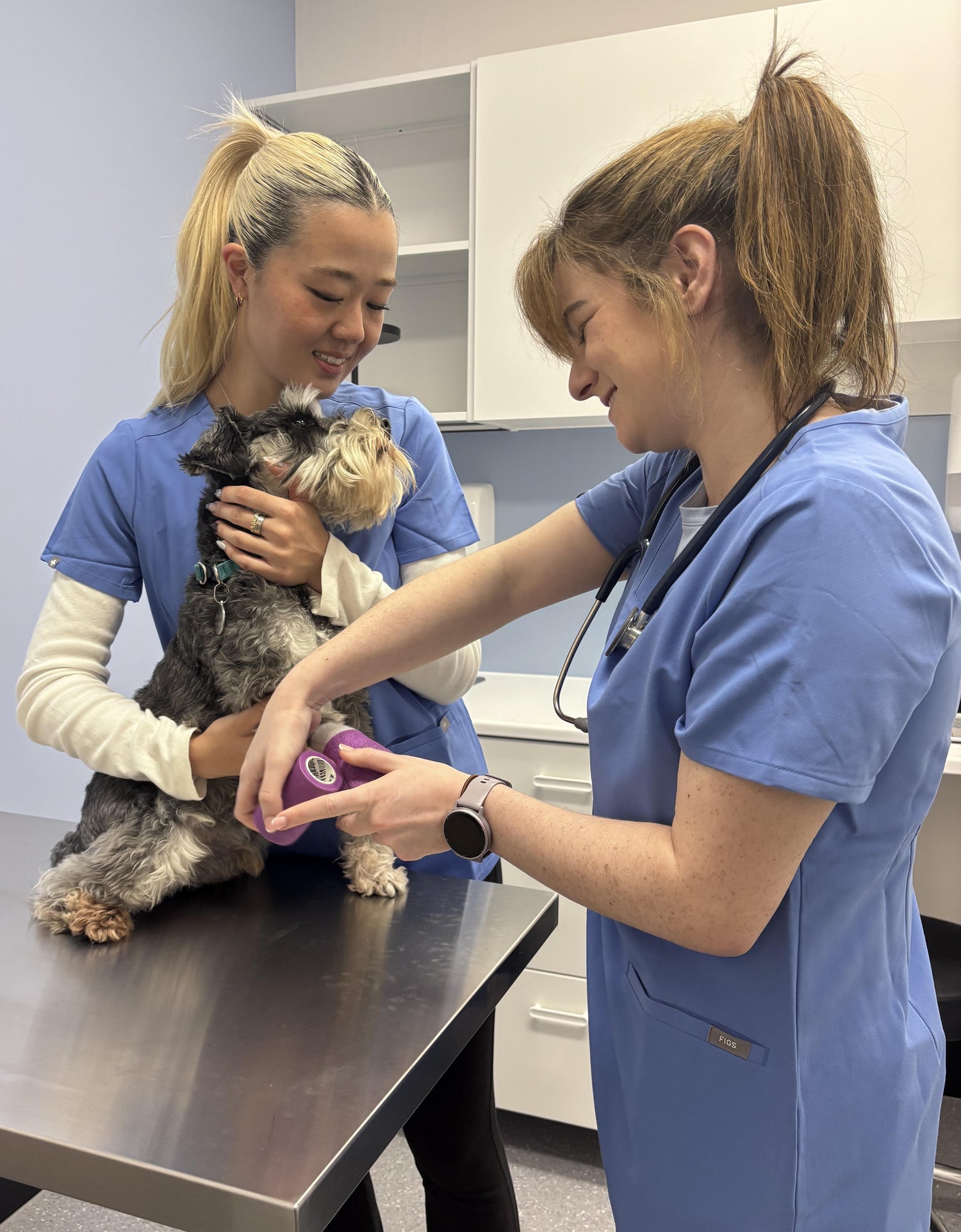Desexing

Desexing or neutering your pet is a surgical procedure that prevents them from being able to reproduce. In male pets it is commonly referred to as “castration”, and in female pets as “speying”. This is a routine, day procedure for your pet and they are generally able to go home by the end of the day of their surgery.
The most common age to desex small breed dogs and cats is approximately 6 months, before they have their first season. In larger and giant breeds of dogs we recommend waiting until they are between 12-24 months of age, depending on their breed. This allows their bones time to grow, and their growth plates time to close.
The benefits and advantages of desexing your pet are:
- Preventing unwanted litters, which can be very costly, and may add to the already overwhelming number of stray animals or animals that require rehoming in our communities.
- Stopping the "heat' cycle in females
- Prevention of testicular cancer and prostate disease in males
- Prevention of pyometra (infection of the uterus) and mammary tumours (breast cancer) in females
- Decreasing aggression towards humans and other animals, especially in males
- Being less prone to wander, especially in males
- Reduced council registration fees
What to do and what will happen before surgery
- Make a booking on a day that suits you (Monday-Friday) for your pet’s surgical procedure.
- If your pet is a dog, you can wash them the day before surgery as they are then unable to be washed for approximately 14 days after surgery to ensure the wound is healed.
- You can give you pet an evening meal as normal the day prior to surgery, but please do not leave food out overnight. Your pet should not have any food after 9pm the night before surgery. Water should be freely available to your pet until they are admitted into hospital.
- Please take your dog for a walk prior to admission to encourage toileting.
- A blood test is recommended prior to surgery to check vital organ function. We routinely assess kidney and liver function, and glucose and total protein levels as well as red and white blood cell counts.
- The vet will perform a thorough physical examination before administering an anaesthetic.
- Intravenous fluid therapy is administered during surgery to maintain optimal hydration and normal blood pressure of your pet during surgery.
- To ensure your pet is as comfortable as possible, all pets receive pain relief as part of the desexing procedure, and we may prescribe medication for you to administer at home for a few days after the procedure.
What will happen after surgery
- It is very important that you keep your pet calm and as quiet at home, as the effects of an anesthetic can take some time to wear off completely.
- Keeping them quiet is also essential to allow the wound to heal efficiently.
- Food should be limited to approximately half of a normal portions on the night of surgery. Please follow any dietary instructions that the vet has provided.
- Please ensure that all post-surgical medications are administered as per the label instructions.
- Ensure your pet’s rest or recovery area at home is clean and warm to avoid infection.
- Please check the surgical wound at least twice daily for any signs of infection or abnormalities such as bleeding, swelling, redness or the presence of discharge. Contact us immediately on 8526 4185 if any of these occur. Do not wait to see if they will spontaneously resolve.
- It is vital that you prevent your pet from licking or chewing their wound. Special cone-shaped collars assist with this problem. A single chew can remove the sutures from the wound, and this can potentially have disastrous effects.
- Please ensure you book an appointment at the hospital for your pet’s routine post-operative assessment as recommended, and also removal of stitches if necessary.
